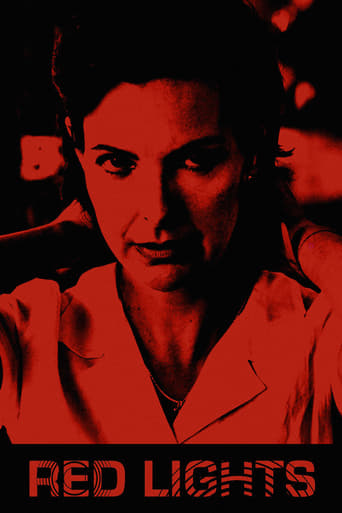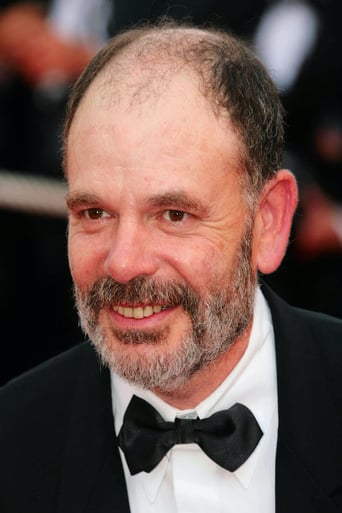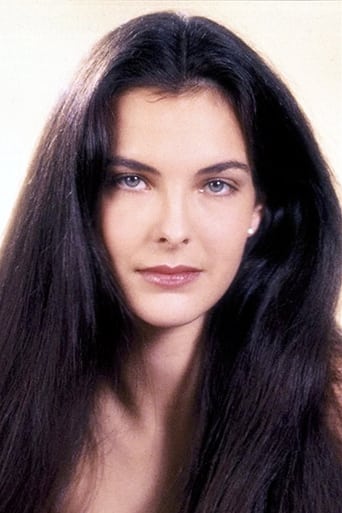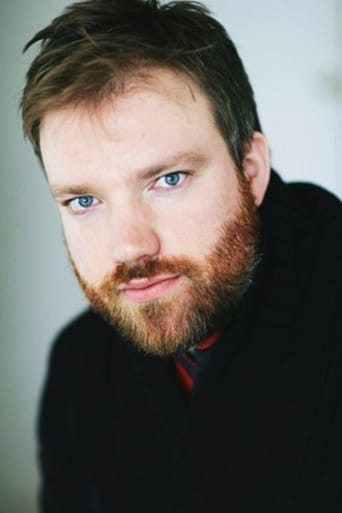

Red Lights (2004)
A cross-country trip turns out to be a nightmare for a troubled couple.
Watch Trailer
Cast
Reviews
Simply Perfect
Exactly the movie you think it is, but not the movie you want it to be.
This is one of the best movies I’ve seen in a very long time. You have to go and see this on the big screen.
By the time the dramatic fireworks start popping off, each one feels earned.
You will follow this movie with much attention and interest in terms of images and scenes but I must confess I have found the story itself in terms of contents a bit uninteresting since the plot has some coincidences that make it somewhat unbelievable. A couple is going to fetch their children who are at a summer camp in the south west of France. They are going by car from the north. The husband is a drunkard and he not only drank a lot already before their ride starts but he also keeps stopping now and then to have a drink on bars along the road. They begin to have fierce arguments between themselves and she ends up by leaving the car on one of his stops. He is bewildered when he comes back to the car and doesn't see her. She had left a note saying she was going to catch a train. From then on a succession of appalling incidents take place making the course of events very dramatic. It's a movie that keeps you attentive and alert all the time despite the fact that the plot itself is not very interesting.
This is the first and only film I have seen by Cedric Kahn, so I have no way of judging if this is one of his better works, or less. I notice some reviewers expressed a total dislike for this film, but I enjoyed it thoroughly.As the film began, the drive took place, and the quibbles emerged between Antoine and his wife, I began to relate to the film because this scenario probably happens daily in many places across the world between a husband and a wife. What made this incident unique, and dramatic, is the other factors that came to play - encounters with a dangerous convict on the run by both protagonists, and Antoine's indulgence of alcohol resulting in him committing certain out-of-ordinary acts. I began to developed a sense of disdain for Antoine as the film progressed, until I saw redemption toward the end.This is a slow film that demands attention. It is one of the more memorable, contemporary French films that I have experienced in the past decade. I would recommend it to anyone that enjoys French cinema.
The French are renowned for intellectualising cinema and identifying it as an area of artistic merit, with films such as À Bout de Soufflé, Belle de Jour, and more recently the enchanting Amelie, providing examples of the pinnacle of film making. Expectations can be high, as they were with Feux Rouges, and it can be easy to be disappointed.The narrative follows a married couple's journey to pick up their two children from summer camp. Helene (Carole Bouquet) is beautiful and intelligent and is a hit at the law firm where she works, but her husband Antoine (Jean Pierre Darroussin) is less successful and attractive, leaving him with feelings of impotency which he deals with by drinking. This offering from our Gallic neighbours has left me with a desire to sign the petition to fill in the channel tunnel immediately. I have been violently offended by this film. I consider myself a modern man, unthreatened by powerful women, I have a willingness to talk about my emotions, I even shed a tear at the end of Titanic. But when confronted with a drink driving caveman that harbours a desire to beat his chest and reinstate some prehistoric superiority over his wife, I can only be insultedThe insult is not the fault of the cast; Darroussin's enchanting performance is particularly impressive, perfectly portraying the levels of inebriation, at times humorous, always pitiful. It is not his drinking that annoys, as Dudley Moores Arthur and Richard E Grants Withinail show, drunks can be hilarious. It is the response of those around the drunk that are both bewildering and frustrating. Bars next to the motorway continue to serve the drunken Antoine, and he coasts through a police roadblock with ease. The night time cinematography is surreal and beautiful, perfectly expressing the hypnotic quality of road markings and headlights that can easily enthral the unwary driver. This is heightened by a fairy tale quality that is given to some of the nocturnal motorway encounters. The director does manage to build up tension, and the first half of the film is gripping as we search for the answers for Antoine's drinking and sympathise with his plight as he is continuously kept waiting by his wife. Their relationship is interesting at this stage, primarily because we are intrigued why Helene has settled for the unhappy and unpleasant Antoine. Unfortunately the film deteriorates quickly from then on, never knowing quite what it wants to say. The only message that does come through clearly is a rather unpleasant one regarding equality between the sexes in a contemporary world. Antoine's journey is one of discovery as he searches for his identity as a man. This is emphasised by his disregard for authority by speeding and drink driving, causing his wife to get the train. His attempts to bond with other men and his rants about brotherhood seem laughable, but also dangerous, as shown in the tense scene in which he picks up a hitchhiker. The film continues to irritate when Antoine realises that the hitchhiker is a wanted killer, but looks up to him because he is a "real man" and does not bow down to anyone. By allowing Antoine to kill this murderer in self defence the audience is told that it is in combat that men become real men, in this case Antoine regains his masculine power. He becomes the warrior. Helene is still strong though, and in order to put her "back in her place" and to restore Antoine's masculinity fully, Helene has to be stripped of her power by the last weapon of degradation that man has against woman. The rape revelation allows Antoine to return to his shattered and broken spouse and be a pillar of strength, taking his "rightful" place as master of the household and removing any guilt he would feel at taking another mans life, as he can view it as revenge for the violation of his wife.Is this a comment on the modern man? Are we still in an age in which men are so threatened by equality that was want to revert to some archaic time where the phallus rules over all?The cinematography is impressive in parts, the characters are believable and there are moments of genuine humour, but it is uneven, with plot holes and distracting suggestions about infidelity and conspiracy theories. As a literary adaptation it suffers from the lack of a strong captain at the helm, who also appears to have been intimidated by the source material. It lacks clarity of storytelling, and bumbles between a cinematic experience and the representation of a literary one. Feux Rouges remains an immensely irritating film that portrays a man that has no place in today's society.
After "L'ennui", this was the second Cédric-Kahn-movie I have seen, and I found it great. Kahn proves himself a specialist on ridiculous men lacking self-confidence and absolutely inapt to retain some dignity in a modern world like this.The thriller plot, as stated by some earlier commentators, may be a little weak, especially as regards the "man on the run" (he is obviously taken directly from the Simenon novel but his character is neither fish nor foul). But this is not what it is all about. The thriller plot is merely an excuse to give a touching and disturbing portrayal of character Antoine (and his marriage).Let me answer to two of the "plot holes" discovered by two other commentators: Antoine's drinking does make sense; he drinks because of frustration and a minority complex for not feeling man enough in the presence of his successful wife. His drinking is a childish act of defiance, he is not a sensible grown-up, not a man (as he keeps repeating himself). And of course, he doesn't recall all these telephone numbers from his memory; as indicated with one of the first calls, he calls directory inquiries and has himself connected to the respective partner each time (remember, there is cuts between the various calls).Red Lights is a brilliant character study concealed as a masterpiece of suspense. Darroussin gives a touching performance in his role as hero and anti-hero at the same time. He is not particularly likable but still makes us feel sorry for him.The ending, which I am not going to reveal here, is stirring in a very subtle way because above all it raises the question how it is all going to go on.I like stories in which weird things happen out of character logic. This is a particular successful one.


